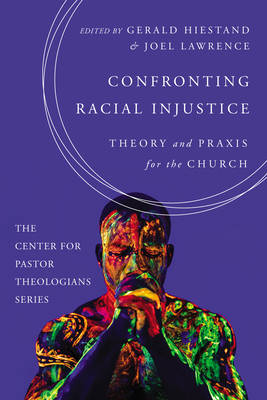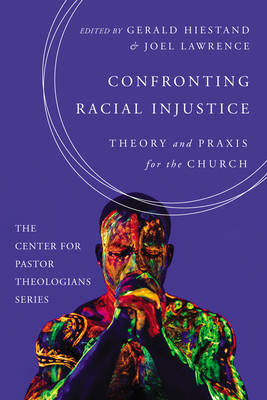
Bedankt voor het vertrouwen het afgelopen jaar! Om jou te bedanken bieden we GRATIS verzending (in België) aan op alles gedurende de hele maand januari.
- Afhalen na 1 uur in een winkel met voorraad
- Gratis thuislevering in België vanaf € 30
- Ruim aanbod met 7 miljoen producten
Bedankt voor het vertrouwen het afgelopen jaar! Om jou te bedanken bieden we GRATIS verzending (in België) aan op alles gedurende de hele maand januari.
- Afhalen na 1 uur in een winkel met voorraad
- Gratis thuislevering in België vanaf € 30
- Ruim aanbod met 7 miljoen producten
Zoeken
Confronting Racial Injustice
Theory and PRAXIS for the Church
€ 36,45
+ 72 punten
Omschrijving
One of the greatest crises facing the church is the crisis of racial injustice that has so long marred the body of Christ in America. Evangelicals have traditionally had a set of biblical, theological, and cultural tools we have used for dealing with questions about race: the necessity of personal responsibility, the possibility of heart renewal through faith in Jesus, the transformative impact of interpersonal relationships, and the bedrock conviction that every human being is made in the image of God and is thus of equal worth and dignity. But in the world after 2020, the evangelical church must now recognize that our theological playbook has been ineffective in rooting out racism from the church and in confronting our own complicity in racial injustice. We must now ask: What other theological convictions are required of us as we consider the image-bearing humanity of George Floyd, Breonna Taylor, Ahmaud Arbery, and many others? Confronting Racial Injustice explores theological vistas to aid the church in our pursuit of racial justice.
Specificaties
Betrokkenen
- Uitgeverij:
Inhoud
- Aantal bladzijden:
- 192
- Taal:
- Engels
- Reeks:
Eigenschappen
- Productcode (EAN):
- 9781666737349
- Verschijningsdatum:
- 30/11/2022
- Uitvoering:
- Paperback
- Formaat:
- Trade paperback (VS)
- Afmetingen:
- 152 mm x 229 mm
- Gewicht:
- 290 g

Alleen bij Standaard Boekhandel
+ 72 punten op je klantenkaart van Standaard Boekhandel
Beoordelingen
We publiceren alleen reviews die voldoen aan de voorwaarden voor reviews. Bekijk onze voorwaarden voor reviews.








